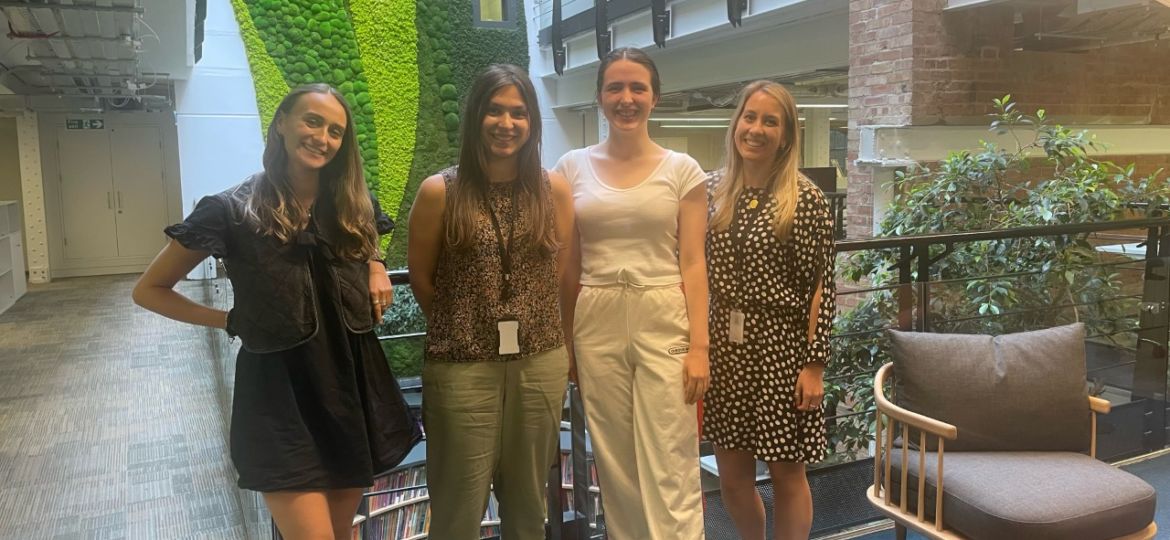
My week with IME
Unknowingly, I have walked past the Springer Nature offices almost every weekday for the past five years on my way to school. The automatic doors would slide open as we walked past in the early mornings and we would sometimes look inside past the barriers guessing what they would lead to.
I am 16 and have just finished my GCSEs at a local community school close to the Springer Nature offices. During the school year, I took part in a mentoring scheme with women from all across Springer Nature. Under this scheme, I was mentored by Rebecca Cox, the lead writer on the Springer Healthcare IME team. She was my mentor through my first ever stretch of exams, the oddly competitive 6th form application process, and trying to figure out what my next steps were going to be. I am interested in science and medicine and Rebecca has helped me figure out, in a moment when I felt like I was closing so many doors, the infinite number of options I actually have.
Even when the school mentoring started, I never made the connection between the inconspicuous building we walked past on the way to school and the international publishing house I saw in the background of Rebecca’s Zoom screen. In our last session, I asked if it was possible to do some work experience at Springer Nature over the summer. When the time came for the work experience to begin, I looked up from my Google maps that was telling me to enter a building so familiar, it all suddenly became so unknown, and in that moment I realised I didn’t really know my school route as well as I thought I did. I was so happy to be given the opportunity to be inside this elusive building and to be immersed in a new community of knowledge and creativity.
The IME team works on so many different projects, all of which seem to me to all be on the frontline of new and exciting ideas. There were a lot of conditions I had not heard of before, like the rare disease Fibrodysplasia ossificans progressiva (FOP). However, one disease my work experience covered was very familiar to me: non-alcoholic steatohepatitis (NASH). My mum has an autoimmune liver disease called Primary Biliary Cholangitis (PBC) and my grandma had a liver transplant for the same condition. My grandma was a founding member of a liver patient group, LIVErNORTH, and we as a family are very involved. I have been to many talks by doctors and researchers working on different liver diseases, including NASH, so it was really interesting to learn a little bit about the IME’s work on this. Throughout this week, particular highlights have included looking through stock images to illustrate an article on pregnancy for the MedWire team, sending out promotional tweets and email blasts about IME programmes, the high-stakes Friday quiz, and meeting the really friendly, approachable and kind people who work at Springer Nature. They have made me feel so welcome.

